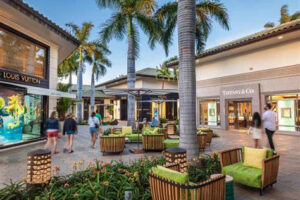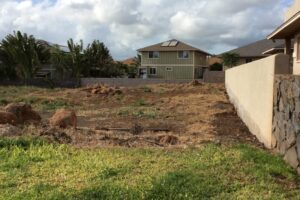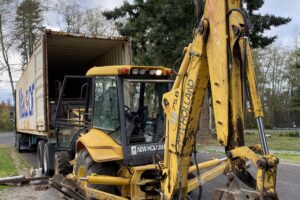Chapter 3: Gravity
Last night’s crowd diminished; however, Leigha noticed a few pavement stragglers barked orders while straddling their bicycles from her window. A local tow truck hauled off the burnt car that rested in the middle of the street, leaving residual asphalt charred mark that reminded her of a dead body outline in a homicide case.
Mostly hooded individuals busily organized makeshift tents up the blocked-off street. Leigha shook her head and glanced at the destroyed brewpub across from her coffee shop. That popular place had just opened two months ago, and one solitary neon beer sign hung above the tall, glassless storefront door. A loose wire caused the iconic palm tree display to flash intermittently.
She wondered,… no, worried about the employees now without income. And the pub owners hadn’t had their doors open long enough to offset the startup expense. Over a cup of coffee, the two spoke of their lifelong invested savings on this brewpub dream.
“Well, that business won’t be open for a long time. What a nightmare!” she muttered and pinched her lips.
Leigha stood riveted in the middle of her gray coffeehouse as the clock ticked on. In turn, two men pulled plywood from the sidewalk stockpile, where the brewpub Happy Hour A-board formerly stood. With screw guns in hand, they systematically boarded up their storefront one piece after another. She was mesmerized or numb or a combination of the two.
An older white pickup burdened with plywood, and a ladder rounded the corner, slowed in front of the coffeehouse, hopped the curb, and parked. It was Douglas, Leigha’s elderly landlord, who was flanked by his son Jake. Leigha was both ironically grateful for the distraction and dreading the anticipated conversation.
Jake met her eyes, nodded, then walked across the street to talk with the brewpub workers. Douglas nervously glanced up the street then turned his attention to Leigha. He asked for details from his tenant, and she watched him fiddle with an old camera strapped across his shoulder. His concern ran deep by the look of his eyes, and he spoke as if out of breath.
“Were you home when the looters busted through?” and “Are you alright, dear?” and “Was the kitchen door locked?” He paused at intervals to take pictures of his building from all angles, inside and out.
Her answers were detailed but as brief as possible. She didn’t want to talk and was surprised her voice was audible. In the conversation, there afforded little emotion, but those swollen eyes and tight throat told that story. The building owner stood a bit wobbly, slowly taking in the full weight of the destruction, and rubbed his unshaven chin.
When the news hit, his son had traveled through the night to help his aging father, and they both looked unslept and disheveled. Douglas shook his head repeatedly to himself, and his shoulders were rounded even as his son rejoined along with the two men from the brewpub. The three young men began the tedious boarding-up work on the coffeehouse. Leigha numbly handed screws up the ladder and attempted shaking the zombie and autopilot feeling. Her diverted eyes regularly glanced at the nest of tent activity up the street.
Douglas buried himself in his camera work, then came the time for gravity. Both father and son joined Leigha inside the dim coffee shop. In slow motion, the elderly owner sat down on the only chair with four sound legs, pulled a kerchief from his pocket to pat at his face, and shook his head. As his right foot kicked the littered glass, the old man stared at the floor and stated the place was unsafe; Leigha needed to move out.
She closed her eyes, pulled her jacket, and lapped it at the front for extra warmth. There would be no coffeehouse here. Not now, maybe never. She knew the brick building had been the old man’s retirement plan since his wife passed away.
“This heap is worthless as it sits! What am I supposed to do? I don’t have the funds to restore this mess to a rentable condition. I can’t sell it now… as it is,” Douglas paused to catch his breath. “And I certainly don’t want anyone to live in this dangerous area. What’s happened to this world?” He frowned and rubbed his chin in disgust.
No one answered. His son stood woodenly against the cashier counter, both hands pocketed, and his baseball cap bill pulled firmly down to shield his eyes. There were no smiles, only slack-faced blank, numb, lifeless stares. Indeed, this brick building sat in the middle of a one-sided war with an uncertain end. They collectively grieved.




